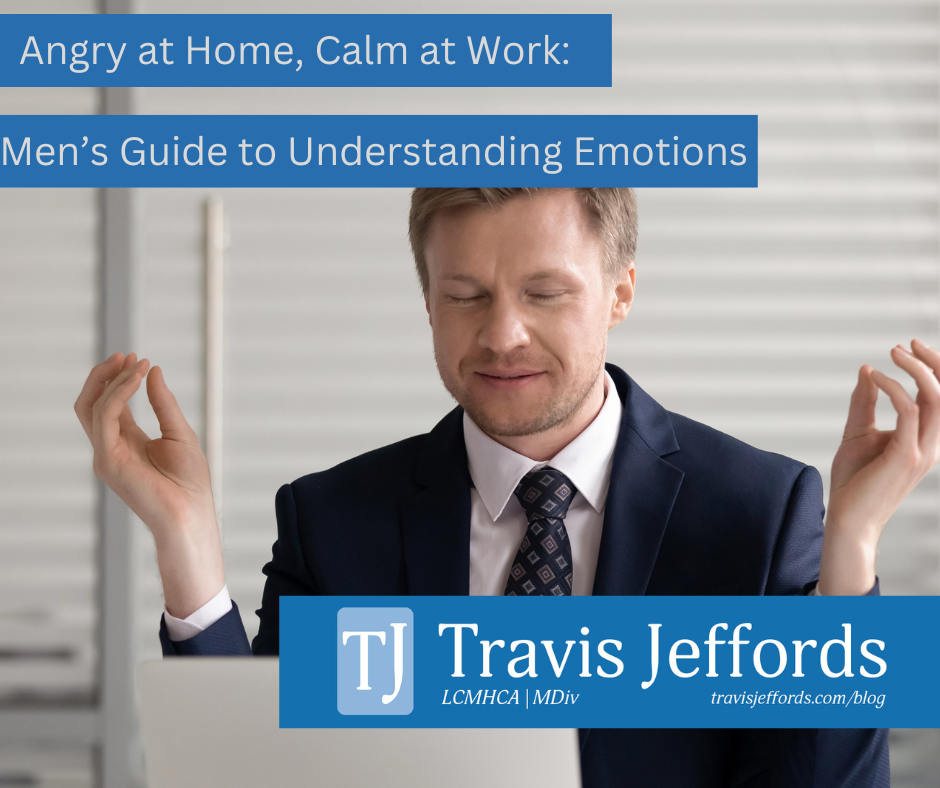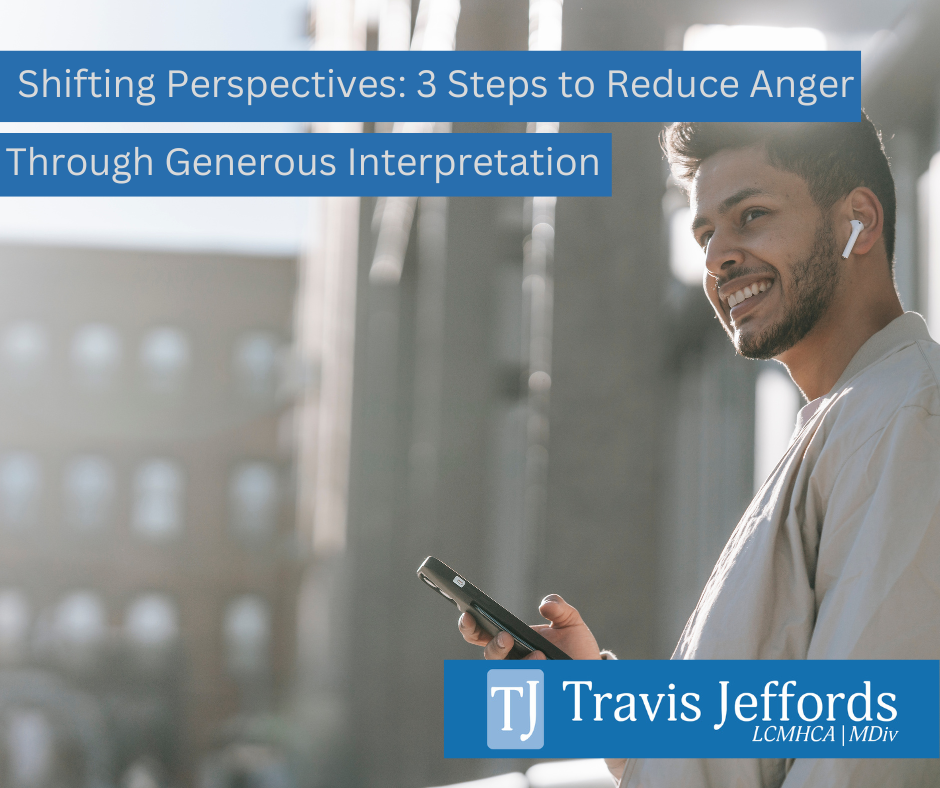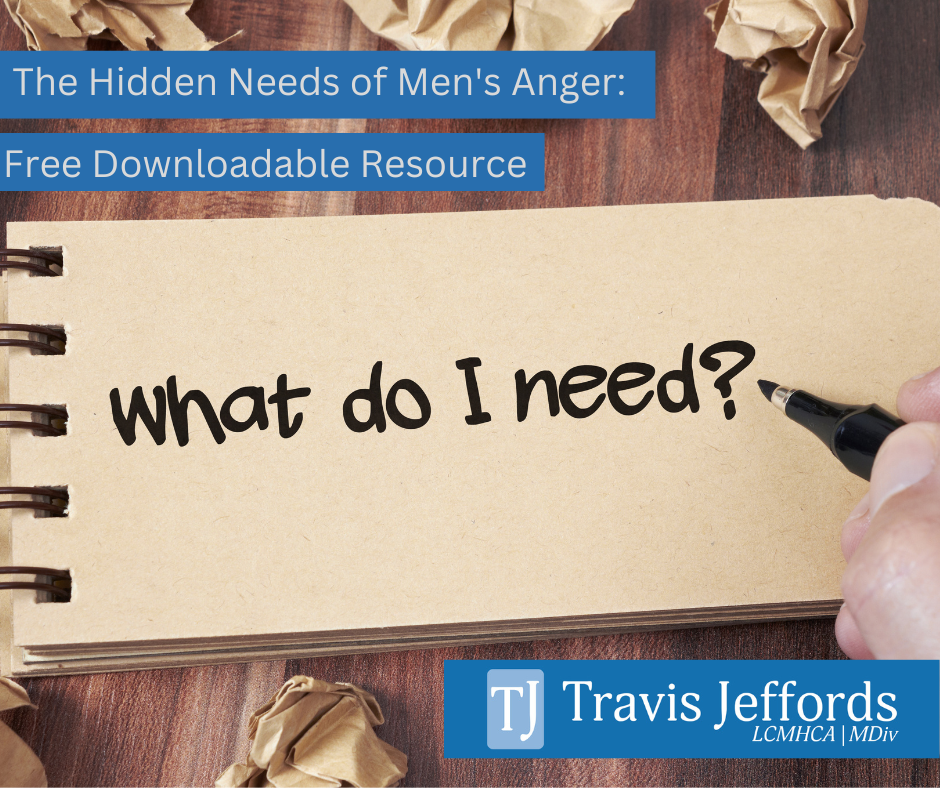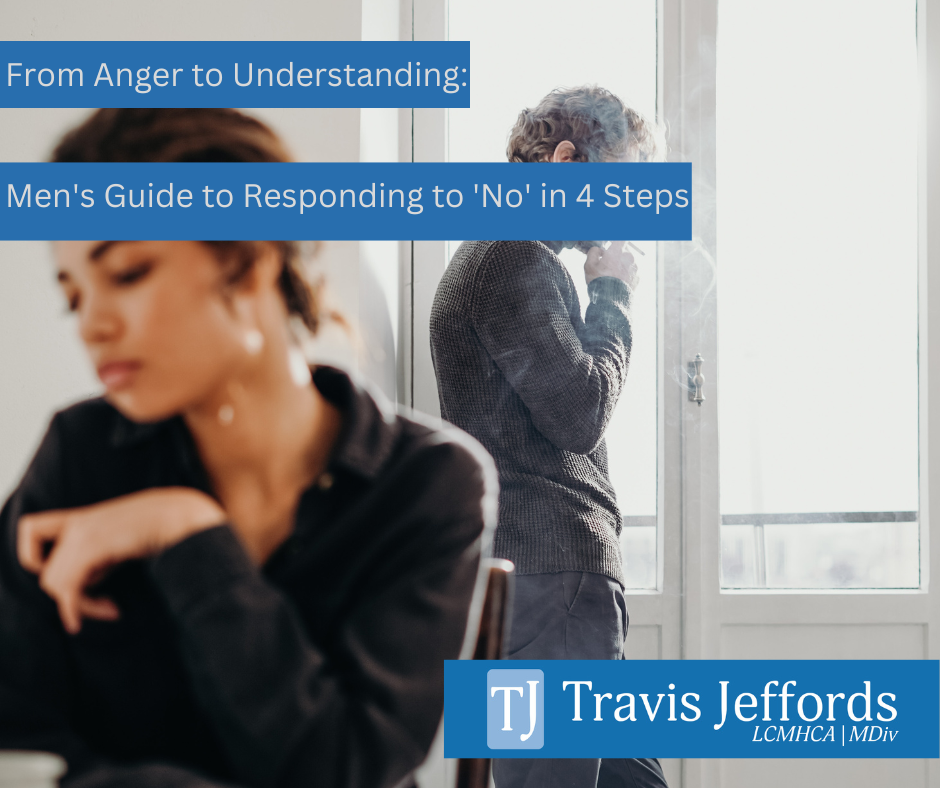GUEST POST: 3 Problematic Ways to Express Anger
Let us get this myth out of the way: Your anger is not the problem. Likely, if you are someone who struggles with anger management, it is the way you behave when angry that is causing you the most grief. Anger is a normal human emotion, just like sadness, joy or fear.
I am a therapist in Thunder Bay, Ontario who specializes in therapy for men and anger management. When clients come to my virtual office for anger therapy, they usually fall into 3 categories of problematic ways anger can be expressed. Let me explain what those anger expressions look like, and maybe you can relate…
No. 1 - Aggression.
Aggression is the most well known of the problematic ways anger is expressed. It is the stereotypical anger explosion that we experience when our anger is pent up.
The aggression I am talking about is when your anger is expressed outside of yourself. It might look like:
Yelling, shouting
Swearing
Threats, Intimidation
Name-calling
Breaking or throwing things
Verbal or physical abuse of others
For those who express their anger through outward forms of aggression, it can be an impulsive thing. This means, you do not want or mean to be hostile or intimidating, but when your anger gets too intense you gravitate towards expressing it this way. The pent up energy that your anger gets you in fight mode.
For others, outward expressions of aggression like above can be normalized as an effective or accepted form of anger expression. It is not until relationships start breaking down or they are in conflict with the law for example, that they may start to see it as less effective than they thought.
No. 2 - Passive-aggressive.
Passive-aggressive is its own category here because it really is a unique form of anger expression despite its place in the aggression family.
It can come from a place of feeling helpless, like being assertive or direct is not an option. So instead you find a round-a-bout way to express your anger. Here is what passive-aggressive expressions of anger might look like:
Sulking
I am pissed, so I am just going to say nothing. Others can feel my bad energy, sense that I am upset, but instead I will deny my anger and mope around.
Sarcasm
My anger looks like smart remarks and mockery of whatever or whomever is the source of my anger. My contempt is hidden behind provocative jokes or veiled insults.
Sabotaging
When my anger takes over I sabotage whole conversations. I become so unhelpful in finding a resolution that I bring the topic off track and distract in various ways, like blaming, knowing the road will not bring us to a healthy end. Maybe I will go even as far as sabotaging a whole relationship to get the anger out, though that is not what I would want if I were calm.
Stonewalling
I refuse to hear others’ if I am angry. Instead of taking a break to calm down and coming back to the conversation, I block them out all together. I will not acknowledge their perspective and choose to withdraw from them instead.
Gaslighting
When angry, I manipulate the other person so they question their own reality, how they see or remember things. I want them to recognize only my perspective as valid.
No. 3 - Self-directed
Self-directed anger is what it sounds like. It is turning the feeling of anger on yourself even when you are not the cause.
This form of anger expression can feel safest for people because it does not include confrontation or engagement with others. It however is an incredibly self-destructive way to express anger. Let us see what self-directed anger might look like:
Isolating
Overwhelmed by my anger I remove myself from the world. I block everyone out, find my place to escape, and stop participating in life.
Deprivation
My anger turns into denying myself wants AND needs. So not only am I stopping myself from going out to enjoy a movie or eat my favorite food, I might also stop caring about brushing my teeth or getting to bed at a decent time so I can get up for work the next day.
Negative thinking
You know how when some people get angry they yell and name-call the other person? Well, I do that in my head… to myself. I tell myself it is my fault or think of all the ways I could or should have avoided situations. I do not let myself off the hook.
Self-harm
Physical pain can be a punishment or relief. My anger might turn into pinching myself, burning, or cutting. It is not about wanting to die, it is a result of the overwhelming anger I feel and do not know what to do with.
So I just blabbed about problematic ways of expressing anger. You might now be asking… ok, then what are the non-problematic ways? What do I do with it?
Calm down before even deciding to express. This means take a break from the situation that caused the anger. Try breathing exercises, progressive muscle relaxation, exercise, rest/sleep, throw cold water on your face etc. to calm your body down.
Go beyond venting. Process where the anger came from - why, who, when, where, how. If you get really mad, often it is deeper than just: “I was angry because they did not do the dishes”.
Challenge stinking thinking. Maybe you need to take more responsibility for your part. Maybe you need to not blame and berate yourself. Find balanced thoughts by checking the facts of the situation. Then you can better gauge if you are reacting to what you perceive to have happened or assumed their intent to be.
Communicate respectfully and as calm as possible. Effective repair with someone else means helping them understand your experience and perspective AND RECIPROCATING. It means trying to understand where they are coming from too (even if you do not agree).
With that said, this is just a starting point. Advice on healthy ways to express your anger will vary greatly depending on your specific situation. Try to seek advice from a mental health professional who can tailor approaches to your needs.
My name is Christine Olsen.
I am a Registered Social Worker & Psychotherapist providing online counseling for anyone in Ontario, Canada. I specialize in helping men manage emotions without shutting down, exploding with anger, and causing strain on relationships.
www.olsenpsychotherapy.com to learn more.
Hi, I’m Travis.
My clients describe me as calm, compassionate, and curious…
You have these qualities inside you at your core too. You just need a little help uncovering them.
If you’re dominated by anger, anxiety, shame, or self-criticism, I can help you re-connect with who you really are: confident, calm, courageous, compassionate, and connected to yourself and others.
Travis Jeffords - LCMHCA | MDiv. | Male Counselor
In-person counselor: Greensboro & Winston-Salem
Virtual counselor: North Carolina
Licensed Counselor
Please note: The information provided in this blog is for general informational purposes only and is not a substitute for professional counseling or therapy. The content presented here is based on my professional knowledge, personal experiences and research, but it should not be considered as a replacement for individualized mental health advice.
Every individual is unique, and the content provided may not be applicable to everyone's specific circumstances. It is important to consult with a licensed mental health professional regarding your specific concerns and to receive personalized guidance tailored to your needs.














